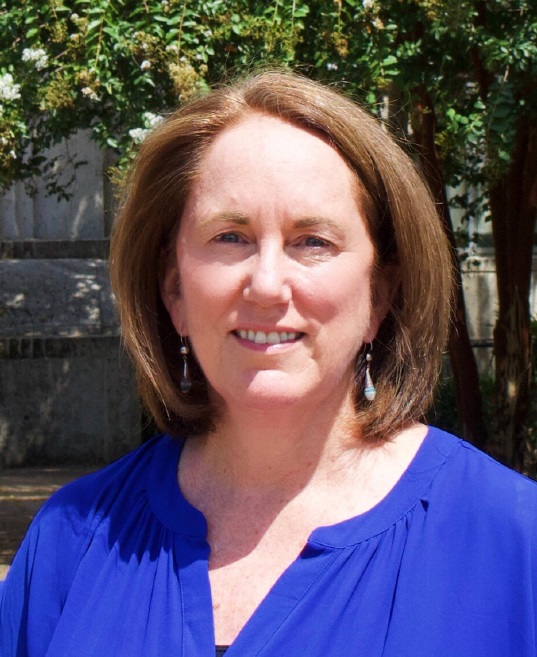Kairn A. Klieman | Department of History
Kairn A. Klieman
Associate Professor

Phone: (713) 743-3106
Email: kklieman@uh.edu
Office: 526 Agnes Arnold Hall
Dr. Kairn Klieman was trained as a specialist in central African and the use of comparative historical linguistics to reconstruct the ancient African past (UCLA, 1997). Her interest in African culture and history began as an undergraduate studying African art history with Professor Herbert Cole (UCSB) and was reinforced through service as a Peace Corps volunteer in the Democratic Republic of Congo (1984-1986). Her first book, "The Pygmies Were Our Compass": Bantu and Batwa in the History of West Central Africa, Early Times to c. 1900 C.E. (Heinemann, 2003) reconstructed the changing nature of relationships between Batwa ("pygmy") peoples of the Central African rainforest and their agriculturalist neighbors over a 3000-year period. Lauded as "stunning," "a truly remarkable book" (ASA), "profoundly original," and "nothing short of revolutionary in central African Historiography" (CHOICE), the work was chosen by the African Studies Association as a finalist for the Melville J. Herskovits Award in 2004. It was also named a 2004 CHOICE Outstanding Academic Title.
While Dr. Klieman remains passionate about the importance of pre-colonial African history, life in Houston – the hub of the international oil industry – led her to undertake historical investigations more relevant to the modern-day economies of Africa. Her second book (in progress) Before the “Curse”: Petroleum, Politics, and Transnational Oil Companies in the Gulf of Guinea, Africa, 1890s-1980’s constructs the history of fossil fuels and American oil companies in Africa. It is unique in that it assesses both the “downstream” distribution era (1890s-1950s) and early “upstream” extraction era (1950s-1980s) of African oil history, highlighting the role of oil and U.S. oil companies in a number of watershed events of 20th century Africa (WWII, Nigerian Civil War, Congo Crisis, Angolan War of Independence).
To put her findings into practice, Dr. Klieman joined forces with Mr. Tom Mitro (retired oil executive, Nigeria and Angola) to create the UH Graduate Certificate in Global Energy, Development, and Sustainability (2013-2019). The goal of the certificate was to teach graduate students, industry employees, and foreign petroleum officials about complex origins of the “Oil Curse” while providing insights into policies that ensure better outcomes for companies, communities, and governments alike. Growing distress about the impact of global climate change, however, led Dr. Klieman to seek out collaborations with institutions more focused on mitigating the impacts of environmental crises at home and abroad. As an example, she currently serves on the Advisory Board of the Houston Climate Justice Museum and is working with its directors and local activists to write a history of environmental justice activism through the arts in Houston, 1960-present.
Dr. Klieman has received numerous awards, grants, and fellowships over the course of her career. Funding for Ph.D. research was provided by the Fulbright-Hayes Foundation, Social Science Research Council, and the Belgian-American Educational Foundation. She also received the UH Teaching Excellence Award (2007), a UH GEAR grant (2008), a Gerald R. Ford Presidential Foundation Research Grant (2009), a West African Research Association Grant (WARA, 2011), an External Faculty Fellowship through the Humanities Research Center at Rice University (2011). Additionally, she participated in Rice University’s Mellon-Sawyer “Cultures of Energy” Symposium at Rice University (2102-2013) and was selected to take part in the 2019 Mellon Summer Seminar at the University of Oregon (“Writing the Environmental Humanities for Public Audiences”).
Teaching (past and present offerings)
Undergraduate
Graduate Courses:
Selected Publications
- The Pygmies Were Our Compass: Bantu and Batwa in the History of West Central Africa, Early Times to c. 1900 (Heinemann, 2003).
- “U.S. Oil Companies, The Nigerian Civil War, and the Origins of Opacity in the Nigerian Oil Industry, 1964-1971,” Journal of American History, vol. 99, no. 1 (June 2012): 155-165.
- “From Kerosene to Avgas: International Oil Companies and their Expansion in Sub-Saharan Africa, 1890s to 1945,” in Environment and Economics in Nigeria, edited by Toyin Falola and Adam Paddock (New York: Routledge Press, 2012).
- "Oil, Politics, and Development in the Formation of a State: The Congolese Petroleum Wars, 1963-68," International Journal of African Historical Studies, 41:2 (2008), p.169-202.
- "Of Ancestors and Earth Spirits: New Approaches for Interpreting Equatorial African
Politics, Religion, and Art." Chapter in LaGamma, A. (ed.) Eternal Ancestors: Central African Reliquary Art (Metropolitan Museum of Art, October 2007).